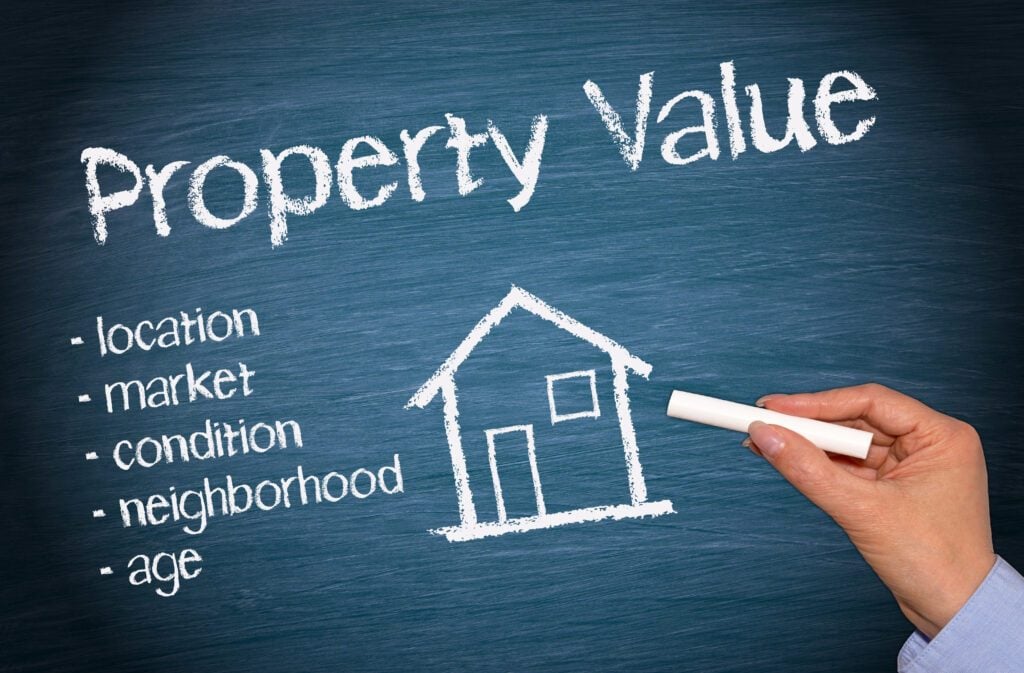The growth of technology has transformed the conventional real estate industry as clients demand smarter solutions while real estate businesses demand efficiency. The entire gamut of technologies for real estate business falls under the label of ‘PropTech’ (Property Technology).
It is revolutionizing how buyers connect with realtors for property purposes, be it for construction, purchasing, property management, home services, selling, or renting.
Technology has always heavily influenced the real estate industry, but recent years have witnessed several notable advancements. As a real estate business, these new technologies will affect the industry and will significantly influence your life in 2022 and beyond, regardless of your role.

Here are the top six reasons why digital transformation is necessary for your real estate business in 2022.
A realtor on the ground can estimate a property's value quite accurately, but new technologies like AI makes it much easier to come up with realistic pricing. It can help in property valuation by determining the rates of the property with the use of a 'predictive analysis' algorithm. This way, realty investors can gauge growth in the value of properties and evaluate possible future risks, besides comparing property rates, among other things.
The accuracy of a property's expected sale price will improve as the capacity to acquire data grows. Here, you can think of integrating your CRM with data sources like RP Data or PriceFinder that help you get reliable value estimations without leaving the CRM's current environment.
There is a common misconception that virtual reality is only useful for video games and entertainment. However, its use in the real estate industry is highly undervalued.
Potential renters and buyers may check for the property from any place with the help of a VR-enabled virtual tour. In contrast to images and videos, virtual reality provides an immersive experience that is both realistic and completely engaging.
You can integrate AR and VR in real estate in the following ways:
Even before the pandemic, VR was slowly being adopted by many real estate marketers. But, with covid norms of social distance and staying at home, virtual reality has become a need in the real estate sector.
Property owners and real estate agents embrace virtual reality (VR) to show prospective tenants and buyers the properties they offer while maintaining a safe distance.
As mentioned earlier, virtual reality and 3D tours have made it easy to get the feel of a property without ever setting foot on the premises. When you leverage these technologies for your real estate business marketing, you enable buyers with the necessary convenience to buy a house. This will open up multiple additional ways to engage through technology-based marketing.
You can use it to provide buyers with tailored advertisements as machine learning and AI advance to target drive conversions. Leveraging numerous social media networks and their targeting algorithms will allow you to establish your brand better. Also, you can use CRM-integrated marketing automation to help create more qualified leads at a lesser cost.
Speaking of automation...
Long-term customer satisfaction is associated with the goods and services that any business offers. And the same is critical to its survival in the competitive real estate market. Automation can effectively track a client's life cycle from when they're a prospect to a resident or renter with a sophisticated back-office operation.
A traditional way of maintaining real estate data is inefficient and time-consuming. But thankfully, there are technological solutions available to help make these repetitive activities more efficient. There are several software choices available to assist you in managing marketing campaigns, appointments, your real estate portfolio, and other tasks.
Smart home technologies are transforming homes for good. Not only are smart gadgets like the Amazon Echo or Google Home being adopted by homeowners, but apartments and condos are now built with smart home technology in mind.
Here are some smart home technologies that your real estate business can leverage:
If you can include all or some of the facilities mentioned above in new construction, buyers will be more likely to go for such properties. While you may feel that these options may lure first-time, Millennial buyers, it is not so as they may add greater convenience and add value to older buyers. Many middle-aged buyers are looking for a house that is fully equipped with smart technology so that they may save time and enjoy a more comfortable lifestyle.
Many modern real estate-based blockchain platforms like Atlant, Brickex, Bloqhouse, and others can help boost the sale and liquidity of real estate. Some platforms go farther than just bringing supply and demand together. For instance, it lets investors sell their holdings in the fund and divide up the real estate investment.
You can use blockchain technology in real estate to sell property tokens (stakes). Moreover, a blockchain may protect the stake's ownership if there are established agreements through smart contracts. Moreover, blockchain can lower transaction costs significantly by allowing investors to split their shares into smaller parts.
Here's how you can sell real estate via blockchain tokens:
The near future will see many top real estate businesses getting more technologically advanced, which will propel industry-wide growth. Anyone considering a startup or making improvements to an existing real estate application should seize this opportunity.
First, you can begin with automating your back-office operations to collect data about your clients. There are simple customer relationship management (CRM) and property management tools that you can subscribe to and start using immediately.
As you collect more data, implement business analytics to check out trends in your consumer behavior and analyze their interests. This will help you to target buyers with the right properties and tailor your marketing efforts accordingly.